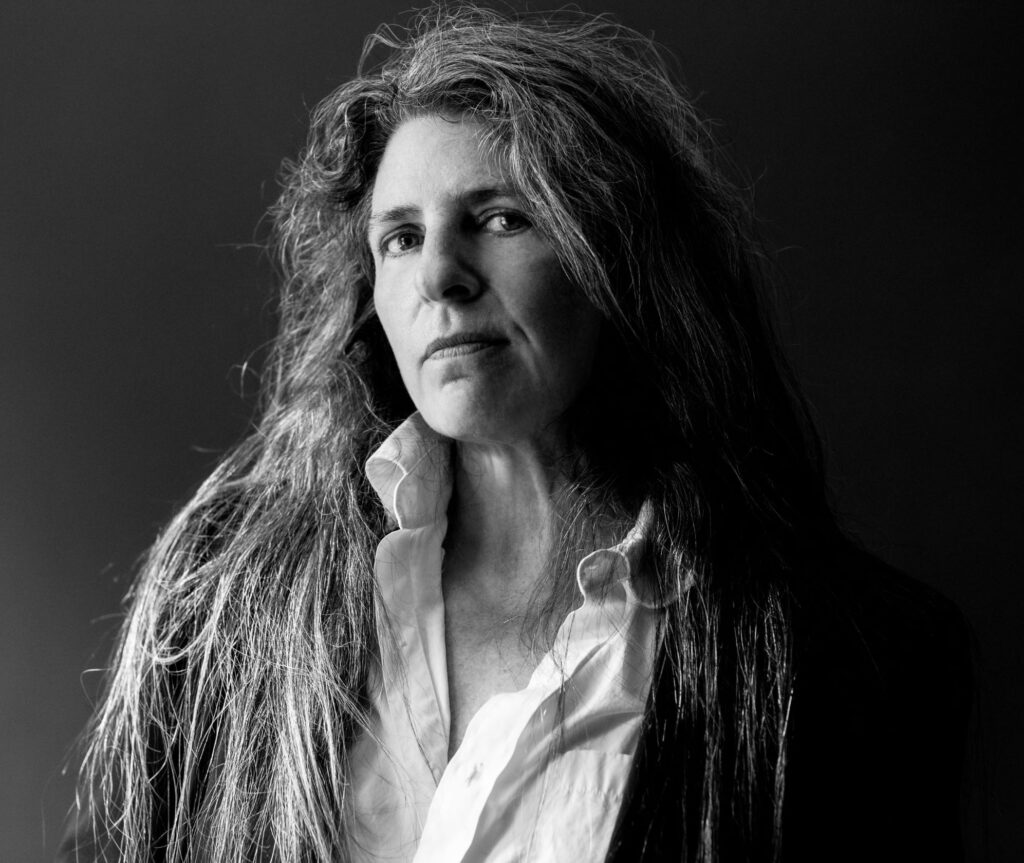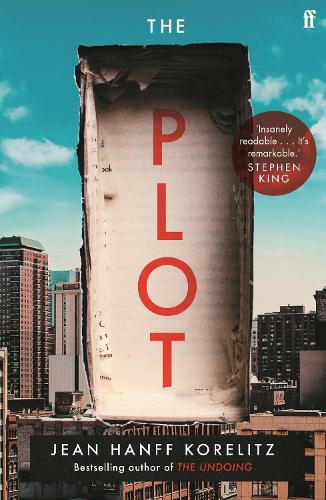Jean Hanff Korelitz: ‘I will spend my life writing about liars’
Novelist Jean Hanff Korelitz (1985) was the College’s Harper-Wood Creative Writing and Travel Award holder. Since then, she has written nine novels including You Should Have Known, which was turned into the HBO series The Undoing, as well as bestselling literary thrillers The Plot and The Sequel. Here, she discusses her writing career, finding success and her lifelong fascination with psychopaths.
Building a successful career as a novelist is never going to be a straightforward path. When Jean Hanff Korelitz realised she wanted to move away from poetry and write novels, it took a huge leap of faith.
“While I was a poet when I was at Cambridge and, before that, at Dartmouth College in New Hampshire, I think my real dream had always been to write fiction. But fiction is terrifying,” says Jean.

“If you spend a few days writing a poem and it’s a failure, it’s a few days lost, but if you write a novel and it’s a failure, it’s years of your life. And that was just way too frightening to even contemplate.”
As a Harper-Wood Award-holder, part of the year of tenure should be spent in a country outside the United Kingdom. The writer is expected to follow a course of study or research, leading to the production of original fiction, poetry or drama. Jean moved to Belfast and then Dingle in Ireland, where she lived with her future husband, the Pulitzer Prize-winning poet Paul Muldoon, and gradually realized that her ambitions lay outside of writing poetry.
“I would say that living in close proximity to a vastly more gifted poet really clarified my understanding of what I might accomplish in poetry, but also what I wanted to accomplish as a writer,” says Jean. “What Paul was doing with poetry was so far beyond what I could ever be capable of. At the same time, I realized that, given the choice between reading a volume of poetry or a novel I was always going to reach for the novel.”
I’ve always been fascinated by psychopaths. My mother was a therapist, and we would often talk about the people in her practice.
She spent the next few years back in New York, working in publishing and writing two literary novels that were rejected everywhere on the planet. “I’d just had my first child, and I really felt like I had failed. The novels I’d written were highly literary. They were full of that stuff I looked for in a good novel. But they were plotless, basically. I was so frustrated that I decided I would purposely write a novel that someone would publish.”
Jean’s first novel, A Jury of her Peers, was published in 1996, “but it also came with its own set of problems, because now I was a thriller writer, which I had never set out to be or wanted to be. And I was under some pressure to write a sequel to that first novel and commit myself to a life of writing thrillers. I didn’t do that. I continued to write literary novels, and I still feel that I write literary novels, even though I’m often to be found on the thriller shelves in the bookstore. But gradually I came to understand how much I truly respect plot. I’m not that interested in ‘whodunnit’. But I’m always interested in the why.”
She wrote one novel inspired by Nathaniel Hawthorne’s The Scarlet Letter, (The Sabbathday River, 1999), and another, The White Rose, (2004), which was a reimagining of Strauss’s opera, Der Rosenkavalier. Her fourth novel, Admission, about a Princeton University admissions officer with a secret past, was made into the film of the same title starring Tina Fey and Paul Rudd in 2013.
Eventually, she would work her way back into more of a thriller area, with her 2014 book, You Should Have Known, which was adapted by David E Kelley into the HBO drama The Undoing, starring Hugh Grant and Nicole Kidman. It tells the story of a therapist who cautions women to listen to what men say about themselves, but then spectacularly fails to see what is going on in her own relationships. It is a deep examination of the impact psychopaths have on people around them. This has turned out to be a recurring theme in her fiction.

Jean says: “I’ve always been fascinated by psychopaths. My mother was a therapist, and we would often talk about the people in her practice. There would be some brilliant woman who was a Harvard-educated CEO. But she would bring in her boyfriend or husband, and it would be so obvious to my mother that this was a person who was deeply insincere, and who was using her in one of many ways. She kept telling us these stories, my sister and me, because she wanted us to be aware that these people were out there, and they were deeply charming people, and yet they lacked any ability to empathise or think of anyone but themselves. These people were all around us, and they could not be fixed. It was in their wiring, and they were capable of causing incredible distress in the world. I’ve always been fascinated by that. I have never stopped reading about them or thinking about them. The education is ongoing.”
Her 2021 psychological thriller, The Plot, is also, in part, about the impact of a psychopath. The story centres on an author with writer’s block who steals a plot belonging to one of his creative writing students after their death. It becomes a blockbuster, but then someone gets in touch who appears to know about this literary theft and begins a terrifying stalking campaign. The book is currently being made into a movie.
Jean says: “This is all over my work, way back to the beginning of it. Sometimes it’s a minor character, sometimes a major character, but this is definitely a thread that runs through all of the work. There are other things that I keep returning to. I’m very interested in academic settings. Obviously, I’m very interested in intellectual thefts, especially plagiarism. But liars, people who lie, are just the most fascinating people to me, and I have no doubt that I’ll continue to write about them for the rest of my writing life.”
Another aspect of her work that has become clear to Jean is the need she has to surprise herself during the writing, which means not plotting ahead every twist and turn in the books.
“I need good writing. I need well-made sentences. I need to feel that everything on the page is supposed to be there,” she says.
“But I also need to be surprised as a writer. There’s nothing more gratifying than hearing from readers how shocked they are by where the story goes. To be shocked and kind of fulfilled, it’s a real hat trick to pull that off, and it took many, many years to get to a place where I was able to write novels that did that.

“Certainly, for my most recent books, The Plot, The Sequel and The Latecomer, I had to discover the story as I wrote it. Which is really the best way to do anything creative.”
When asked whether she has been able to plan her career, Jean explains: “I’m not any kind of planner. I don’t plan what’s going to happen in a book, and I certainly didn’t have the wherewithal to have planned where my career would go. It’s like that Kierkegaard quote about how you can only understand things looking back at them, but you don’t understand them while they’re happening. So now, looking back at my journey (an American word that I hate), I can see what I learned from each book. And I can see it start to come together in the last three books, including The Latecomer, which has some head-spinning plot twists. I didn’t know if I would get to a place in my career where I actually had readers. It took a long, long time, but I got there.”

